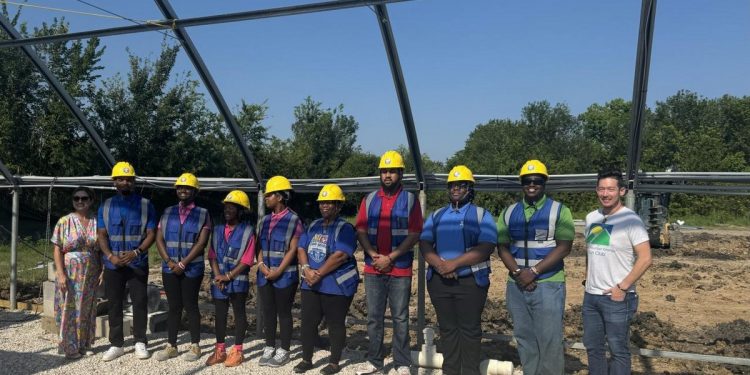In a significant development for sustainable agriculture and urban farming, Pro-Vision, Inc. has secured a grant from Green Mountain Energy Sun Club to fund the construction of three new aquaponic greenhouses at their Pro-Vision/McNair Urban Farm in Houston, Texas. This expansion is expected to boost the farm’s annual produce output by over 37,000 pounds, further establishing the farm as a model of eco-friendly food production and community empowerment.
Aquaponics, the innovative system at the heart of this project, combines aquaculture—the practice of raising fish in tanks—with hydroponics, where plants are cultivated in nutrient-rich water. This closed-loop system ensures sustainable, high-yield production while minimizing environmental impact, making it an attractive option for investors and entrepreneurs seeking to support green initiatives in agriculture.
The new greenhouses will significantly enhance the farm’s capacity to produce fresh, locally-grown vegetables, but their impact extends far beyond just increasing output. As Diana Seifert, COO of Pro-Vision, Inc., emphasizes, “The partnership between Pro-Vision, Inc. and Green Mountain Energy Sun Club will have a positive impact on the youth in Sunnyside, a historically underserved neighborhood in Houston.” These facilities will serve as living classrooms, where young people can learn about sustainable agriculture, environmental stewardship, and nutrition. The initiative also aims to provide valuable job training and income opportunities, empowering local youth with the skills and confidence needed for academic and career success.
By offering hands-on education and employment, Pro-Vision, Inc. hopes to inspire the next generation of leaders committed to sustainability and community development. The farm’s expansion is not just an investment in agriculture but also in the future of the Sunnyside community. Andrea Ortega-Toledano, senior director of sustainability at Green Mountain Energy, highlights this dual impact: “We’re proud to help Pro-Vision expand its urban farming operation and educate the community about sustainable agriculture while providing young people access to academic, economic, and social enrichment opportunities.”
The success of this initiative could serve as a blueprint for similar projects nationwide, demonstrating the potential of aquaponics as a sustainable and scalable solution for urban agriculture. For investors and entrepreneurs, it represents a compelling opportunity to be part of a movement that combines profitability with social and environmental responsibility.











